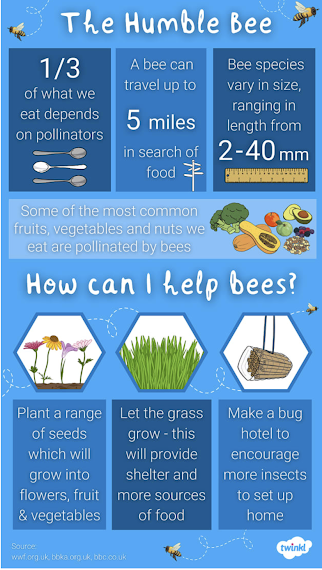I was asked to be a part of an educational resource website, Twinkl, in an article about the honey bee and other bees. Here it is, if you'd like to see. The resources on the page are fantastic and really helpful to students meeting the honey bee for the first time.
This is the tale that began in 2006 in my first year of beekeeping in Atlanta, GA. ...there's still so much to learn.
Welcome - Explore my Blog
I began this blog to chronicle my beekeeping experiences. I have read lots of beekeeping books, but nothing takes the place of either hands-on experience with an experienced beekeeper or good pictures of the process. I want people to have a clearer picture of what to expect in their beekeeping so I post pictures and write about my beekeeping saga here.Master Beekeeper Enjoy with me as I learn and grow as a beekeeper.
Want to Pin this post?
Saturday, May 22, 2021
I was part of an educational bee article!
Impressive Treatment Free Video from Great Britain
My friend Kathy Bourn sent me this video which is very heartening if you want to be a treatment free beekeeper. I haven't treated in my entire sixteen years of beekeeping but this guy doesn't treat and does research to support what is happening with his bees:
Tuesday, May 11, 2021
Hope for the Future: Scout Bees at Dead Hive
A little less than a week ago, I was meeting with the inspector from the Department of Agriculture to help him explore the pesticide kill at my community garden hive.
Today I went to the garden to check out the other hive there and to put some swarm lure on the hives there. There are two empty hives - one that hasn't had a hive in it this year and the dead hive. When I arrived, this is what I saw:
Hope for the future!
There are so many other living spaces they could pick but just in general it feels good to think they are considering our community garden as a living space. I would be so, so happy if a swarm moved in.
Sunday, May 09, 2021
What to do when you have a pesticide kill
The horror of a pesticide kill is extensive. It starts when you see the basketball sized pile of bees dead outside the hive; it continues when you smell the stench of hot dead bee bodies; and it gets worse when you find even more dead bees on the screened bottom board of the hive. I went through all of this when my best hive was killed last week.
The first step was to recognize the reality of the death of the hive. I just didn't want to believe it and took off box after box and looked at frame after frame, hoping it wasn't true. The hive had almost three full boxes of bright white new wax filled with nectar and some capped honey. The hive beetles had begun their opportunistic sliming of the lower boxes, also with some nectar-filled frames. UGHHH.
The next important step was to report the kill. I felt a little reluctant - what were the officials to do? Bees fly three to six miles for nectar and the source of the poison could be anywhere. But my friends urged me to report the kill. In Georgia, this means contacting the Department of Agriculture and filling out a form.
However, the form is designed for farmers and not for beekeepers. Here's the link, if you are in Georgia. Here is the form - the required responses are starred:
They were packaged in aluminum bagging and he wore gloves to diminish the chance of contamination.
Here are the dead bees on the screened bottom board.
Brad seals up the sample and then took it to his car to put it in a cooler.
Here Brad is collecting samples of the vegetation around the apiary. The Georgia Power guys had been mowing, but luckily they are scared of the bees and do not mow around the apiary.
Then Brad and I sat for a long time on one of the pilings lining community garden plots while he filled out loads and loads of paperwork.
Wednesday, May 05, 2021
Pesticide kill at the Morningside Community Garden
I posted this on Next Door in my neighborhood. I don't think it will have impact, but at least I get the opportunity to complain about the people who disregard the importance of pollinators.
Saturday, May 01, 2021
Installing Bees at SPARK Elementary in Atlanta, Georgia
On Saturday, I installed two nucs of bees with Megan McCloskey, the science and nature person at SPARK, on the rooftop garden. We've had bees there for six or so years, but the hives died when we couldn't take care of them during COVID when we weren't allowed in the school. It was great to put bees back there again. They won't produce honey this year but maybe we can get them up and running well enough to make it through the winter.











